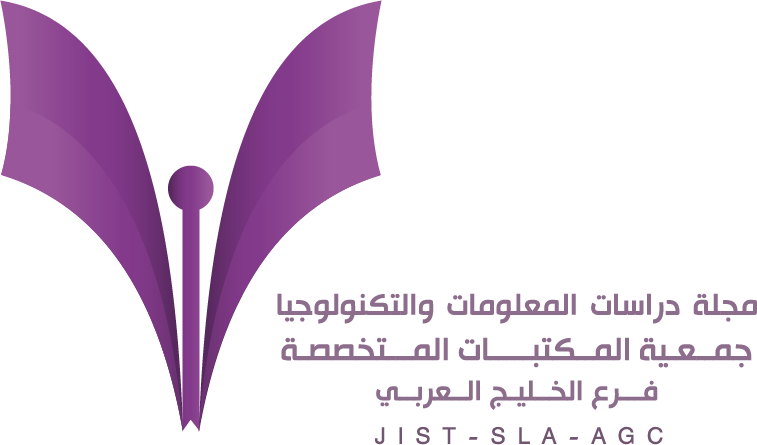-
oa سلوك التعامل مع المعلومات الخاطئة على منصات التواصل الاجتماعي لدى المجتمع العماني خلال أزمة كورونا
- Source: Journal of Information Studies & Technology (JIS&T), Volume 2023, Issue 1, Mar 2023, 4
-
- 08 January 2023
- 07 February 2023
- 31 March 2023
Abstract
ملخص
هدفتِ الدراسة إلى التعرف على سلوك المُجتمع العُمَاني في التعامل مع المعلومات الخاطئة المتداولة على منصات التواصل الاجتماعي أثناء جائحة كورونا، وتأثيرها على استجابة الحكومة للجائحة. اعتمدت الدراسة على المنهج المسحي الكَمِّي، وتم جمع بياناتها بواسطة استبانة مُحكمة. تم اختيار 15 مجموعة في تطبيق الواتساب مرتبطة بمجالات وموضوعات متنوعة لتمثل عينة الدراسة؛ وقد وُضع في الاعتبار التنوع الجغرافي والموضوعي والنوعي للمجموعات. وزعتِ الاستبانة إلكترونياً من فبراير 2022م إلى نهاية إبريل 2022م، واسترجع حوالي 1036 استبياناً صالحاً. توصلتِ الدراسة إلى أن المبحوثين على مستوى وعي كبير بالمعلومات الخاطئة والتقنيات الخاصة بكشفها والتعامل معها. كما أن متابعة المصادر الموثوق بها للحصول على المعلومات حول الجائحة كان سلوكاً ملازماً للمبحوثين؛ مما خفف من تأثير المعلومات الخاطئة التي انتشرت في مختلف منصات التواصل الاجتماعي فى عُمَان. كما كشفتِ الدراسة عن الأضرار التي قد تسببها المعلومات الخاطئة للمجتمع العُمَاني، ومنها ضعف القدرة على اتخاذ القرارات الصَّحِيحَة، وتأثيرها النفسي السلبي. وقد أوضحت النتائج أن الشبكات الاجتماعية مثلت مصدراً مُهِمّاً للمعلومات لدى عينة الدراسة، تم الاعتماد عليه بشكل مكثف للحصول على معلومات متنوعة تخص الجائحة، بل اعتمد عدد من عينة الدراسة عليها في اتخاذ قرارات صِحِّيَّة مُهِمَّة. وقد خَلَصَتِ الدراسة بأن كلاً من الأفراد والحكومة قد قاموا بدور إيجابي في التعامل مع المعلومات الخاطئة التي انتشرت بقصد أو بدون قصد في منصات التواصل الاجتماعي، لكن ما زالت هناك حاجة إلى مزيد من الجهد في التوعية بخطورة المعلومات الخاطئة، واستخدام أساليب مبتكرة في محاربة ذلك النوع من المعلومات.
The objective of this study was to examine the behaviour of Omani individuals in relation to misinformation on social media platforms during the COVID-19 pandemic and its impact on the government's response to the pandemic. A quantitative survey method was employed, and data was collected through a controlled questionnaire distributed among 15 groups on WhatsApp. The sample was selected to ensure geographical, thematic, and gender diversity. The questionnaire was distributed electronically from February to April 2022, resulting in 1036 valid responses.
The study's findings indicated that the respondents were highly cognizant of false information and the methods for detecting and dealing with it. They also demonstrated a tendency to rely on reliable sources for information regarding the pandemic. This helped mitigate the impact of misinformation circulated on various social media platforms in Oman. The study also highlighted the potential harm that false information can cause, including difficulties in making informed decisions and negative psychological effects.
The results revealed that social networks were an essential source of information for the study sample and were relied upon extensively to obtain information related to the pandemic. Furthermore, a significant number of the study sample relied on social media platforms when making important health decisions. The study concluded that both individuals and the government had made positive efforts to deal with misinformation, but further awareness needs to be raised, and innovative methods need to be employed to combat this type of information.


